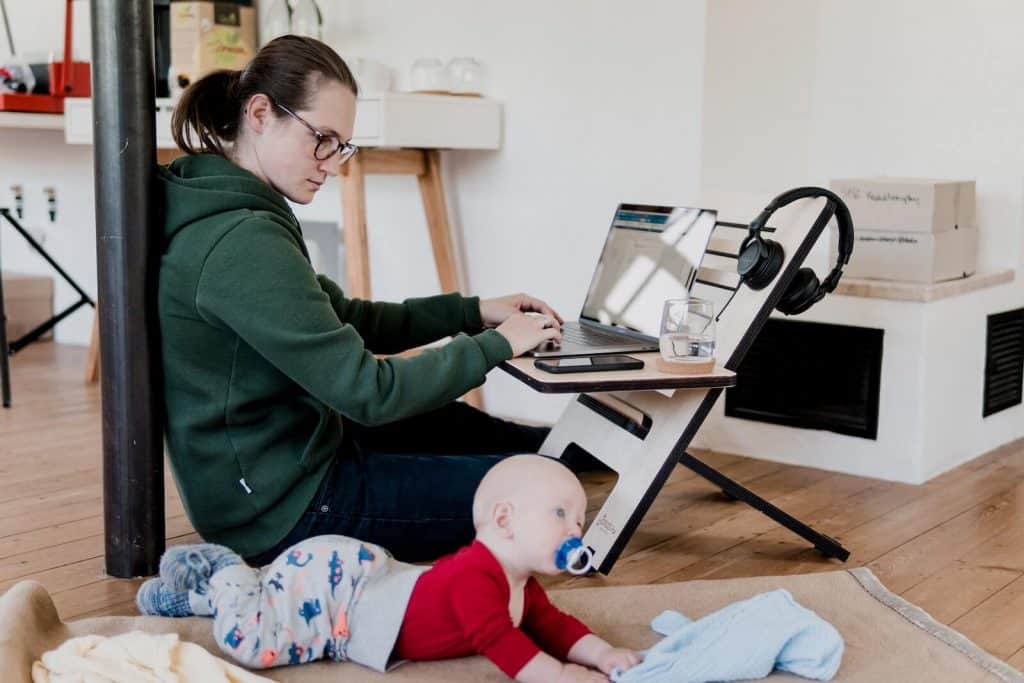A vast majority of us have had to spend a period of time working from home, over the past year. We have been required to quickly adapt and find what works best for our working needs in a very turbulent time. Luckily, for software developers working from home, moving to a remote working situation can be achieved with much more ease than most other professions.
Being a software developer working from home can come with its challenges. Whether you are required to work from home due to the pandemic, or have chosen to do so yourself, here are 5 ways to keep yourself motivated and remain on track as a WFH software developer.
- Factor in Social Time
We forget how important those water cooler and tea break moments are in an office environment. A natter whilst the coffee brews or over a couple of biscuits are vital elements of social interaction. Remember to incorporate segments of time into your working day to catch up with teammates via virtual calls, or check in with clients about ongoing projects. These exchanges and remaining connected to that social human element of work, will greatly benefit your wellbeing whilst WFH. It will even allow light relief from work for a short period of time.
As lockdown restrictions continue to ease in the UK, perhaps make plans to meet with colleagues or friends for a drink (or two) after work, in a socially distanced, sunny beer garden. Everyone is going through the motions at the moment, so it is a good excuse to have some social time, debrief and put the world to right.
- Don’t be Chained to Your Desk
It is important to keep on top of deadlines, but it is also important to have time away from your desk throughout the day. If you were working in an office, you wouldn’t remain at your desk for 8 hours straight, so why would you do that whilst WFH? Getting up and away from your desk can lead to better productivity; it will also give your eyes a well needed rest from looking at a screen. As a bespoke software developer, you will be more susceptible to suffering from conditions such as screen fatigue and muscle strain, so taking regular breaks is crucial for the upkeep of your health and wellbeing.
It is recommended that you get up from your desk every half an hour and spend a couple of minutes stretching or moving around, before returning to work. Make sure you also allocate a good amount of time for your lunch break. Factor in between 30 minutes and an hour, to have a proper interval away from work related tasks and take time to nourish yourself, whilst allowing a change of scenery.
- Work Hard, Play Hard
As software developers working from home, having a health work/life balance is important at the best of times, but is even more poignant in today’s climate. When working from home, try and setup your work space in an environment that you can close the door on, if at all possible. This will draw a clear line between work and domestic space, especially if you are working within your actual home. It can be very hard to separate the two, but be strict with not allowing work hours to leak into your down time. You need to be able to switch off and unwind from the day’s events.
Of course, working remotely as software developers working from home, allows the beauty of being more flexible with your time, but try and stick to some form of structure where possible.
- Create a Schedule
Following on from the previous point, creating an overview for what your working day, or even week is going to look like, will allow you to formulate some kind of consistency and structure whilst WFH. If you were still situated within an office, working for a bespoke software company, you would most likely have to clock-in by 9am, have the first coffee at 9.15am, lunch at 12.30pm, the fourth coffee by 3pm and be heading home by 5.30pm.
Applying a similar agile framework to your WFH environment will allow for a much more healthy outlook on work and enable you to create time of social interactions or other leisure activities outside of worktime. Create a list of tasks that you need to complete on a daily basis and integrate them into a set working day outline, allowing manageable expectations and clear benchmarks.
- Have a Plan B
Unfortunately, not everything will always go to plan. No matter how fast or reliable your Wi-Fi connection is, chances are you may experience it faltering at some point, whilst working from home. As a custom software developer, you will be very aware of how reliant your profession is on high-performance internet. This is an element that is regrettably completely out of your control, and in the unlikely event of it happening, it is good to have some precautions in place, just in case.
Ensuring you have enough mobile data and are able to use it as a hotspot for your PC or laptop in case of emergency, will reduce a major pain point. Perhaps even going old school and having a backup Wi-Fi dongle (bet you didn’t think you’d hear that phrase again) on hand to cover all bases, until your internet connection is back up and running again.
Conclusion:
Being a software developer working from home will allow you a new lease of freedom and flexibility. However, it is good to keep in mind some aspects of office working, to make the WFH transition as smooth as possible.





